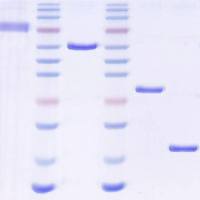Contribution of Alcohol and Tobacco Use in Gastrointestinal Cancer Development
互联网
520
Tobacco smoke and alcohol are major risk factors for a variety of cancer sites, including those of the gastrointestinal tract. Tobacco smoke contains a great number of mutagenic and carcinogenic compounds, including polycyclic carbohydrates, nitrosamines, and nicotine, while ethanol per se has only weak carcinogenic potential, but its first metabolite, acetaldehyde, is a mutagen and carcinogen, since it forms stable adducts with DNA. The possibility of proto-oncogene mutation in gastrointestinal mucosa cells may be associated with tobacco smoking-induced cancers through the formation of unfavorable DNA adducts. Individuals with defective DNA repair mechanisms and unfavorable genetic make-up for carcinogen metabolism may be at increased risk for gastrointestinal cancers. Individuals with a high production rate of acetaldehyde from ethanol also have an increased cancer risk when they drink chronically. These include individuals with a genetically determined increased acetaldehyde production due to alcohol dehydrogenase polymorphism and those with a decreased detoxification of acetaldehyde due to acetaldehyde dehydrogenase mutation. In addition, oral bacterial overgrowth due to poor oral hygiene also increases salivary acetaldehyde. Dietary deficiencies such as a lack of folate, riboflavine, and zinc may also contribute to the increase cancer risk in the alcoholic patient. It is of considerable importance that smoking and drinking act synergistically. Smoking increases the acetaldehyde burden following alcohol consumption and drinking enhances the activation of various procarcinogens present in tobacco smoke due to increased metabolic activation by an induced cytochrome P450-2E1-dependent microsomal biotransformation system in the mucosa of the upper digestive tract and the liver.







